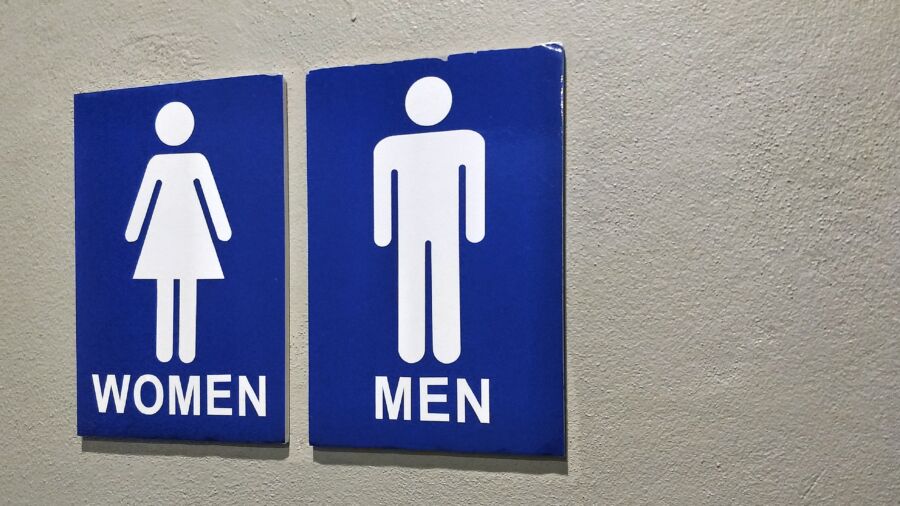Montana has become the latest state to strictly define the terms “female” and “male” based on biology, under a new law signed last week by Republican Gov. Greg Gianforte.
“In human beings, there are exactly two sexes, male and female, with two corresponding types of gametes,” states the law, previously known as Senate Bill 458.
It further provides that sexes are determined by “the biological and genetic indication of male or female, including sex chromosomes, naturally occurring sex chromosomes, gonads, and nonambiguous internal and external genitalia present at birth,” and has nothing to do with one’s “psychological, behavioral, social, chosen, or subjective experience of gender.”
When it comes to the definition of “female” and “male,” the law states that a female is someone who, “under normal development, has XX chromosomes and produces or would produce relatively large, relatively immobile gametes, or eggs, during her life cycle and has a reproductive and endocrine system oriented around the production of those gametes.”
“An individual who would otherwise fall within this definition, but for a biological or genetic condition, is female,” it adds.
In the same vein, a male is defined as someone who normally has XY chromosomes and produces sperm during his life cycle and has a reproductive and endocrine system oriented around producing sperm. Those who have certain biological or genetic conditions but would otherwise fit this definition are recognized as male under the new law.
Republican Sen. Carl Glimm, the primary sponsor of Senate Bill 458, said the bill is necessary because sex and gender should not be used interchangeably in Montana code.
“Gender is obviously something different than biological sex. Biological sex is immutable, you can’t change it. There are only two biological sexes,” Glimm said in February. “You may claim to be able to change your gender or express your gender in different ways that you can never change your biological status, and this is why Senate Bill 458 is necessary.”
Glimm was referring to a court battle over Senate Bill 280, a piece of legislation that became law in 2021 and would have prevented people identifying as transgender from changing the sex on their birth certificate without a court order showing they had undergone surgical transition. In 2022, a state district judge blocked the law’s enactment, saying that it interferes with a person’s right to privacy by forcing them to publicly disclose details of their medical treatment.
The Republican-led effort to codify definitions of the sexes was opposed by the Montana Legislature’s Democrat minority, who said that the state could lose billions of dollars it is receiving from the federal government.
While Republican state lawmakers said it won’t cost the state a dime to implement the changes, their Democrat colleagues argued in a fiscal analysis that the law would create conflicts with the Biden administration’s agenda to expand federal protections to gender identity.
“The Republican majority is willing to risk half of our state budget to be punitive and isolating to a group of Montanans and some $7.5 billion,” Montana House Minority Leader Kim Abbott said in a press conference in March.
Glimm dismissed that analysis as merely a “memo to Democratic lawmakers who want to kill the bill.”
“The memo doesn’t say SB 458 will have any fiscal impact, it just lists all the federal money that comes into the state and says any fiscal impact is speculative and largely dependent on the actions of executive branch agencies,” he told Daily Montanan at the time.
States That Define Sex
Montana is the third state this year to provide a legal answer to questions like “Who is a woman?” and “Who is a man?” Such questions have become increasingly prominent as the progressive left advocates that transgender people should be accommodated according to their preferences, including which bathroom they want to use.
Last month, the Republican-majority Kansas Legislature overrode a veto from Democratic Gov. Laura Kelly to define who is a woman and who is a man in state code. The Kansas law states that women and girls are female, which is defined as “an individual whose biological reproductive system is developed to produce ova,” and that men and boys are male, defined as someone whose reproductive system is developed to fertilize ova.
“The term ‘mother’ means a parent of the female sex, and the term ‘father’ means a parent of the male sex,” it adds.
In a bill signed into law this month by Tennessee Gov. Bill Lee, the language used to define sex is “a person’s immutable biological sex as determined by anatomy and genetics existing at the time of birth.”
“Unfortunately, we have reached a point in society where common words like man or woman, male or female, boy or girl have come under attack,” said Republican state Rep. Gino Bulso, the bill’s sponsor in the lower chamber.
In 2021, Tennessee enacted a law mandating that students participating in public school sports must prove their sex matches what is shown on their original birth certificate. If a birth certificate is unavailable, their parents must provide another form of evidence.
Last April, Lee signed an additional measure to give the 2021 law teeth, authorizing the state’s education department to withhold a portion of state funds from local school districts that fail to determine a student’s sex for participation in sports.
From The Epoch Times


